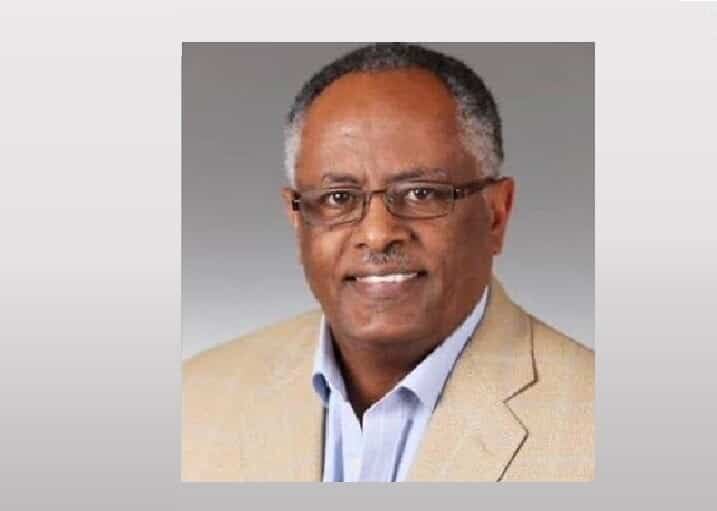
Yonas Biru, PhD
December 10, 2022
The Humanity of the World Can be Measured Against the Fate of Africa
~Former German President Horst Köhler
There are four salient issues with Sub-Saharan Africa’s (henceforth “Africa”) economic reality. First, Africa has become a land of recurring famine, a theatre of civil wars, and a social Petri dish for pandemic outbreaks. In times of such crises, the first and last resort solution African governments seek is external bailout from the West. When it comes to crisis relief, China is missing in action .
Second, Africa is a battleground in the zero-sum geoeconomic rivalry between the US/EU and China. The two power centers win in some countries and lose in others. Africa is the net loser all the time.
Third, in the global economic and political governance architectures, Africa is at best marginalized or at worst excluded. The G-20 that aspires to “lift the lives of the poorest” is an exclusive club for developed and emerging nations. Developing nations, home to 2.5 billion people, are totally excluded. Similarly, the World Bank that purports to “dream a world free of poverty” allows Africa only 5.4 percent voting rights on its board. This is despite the fact that Africa represent 25 percent of World Bank member countries and accounts for 40 percent of the extremely poor in the world. Africa is voiceless in global governance.
Even worse, 60 years after independence, Africa cannot even fund an independent regional body that can speak on its behalf. The African Union (AU) laments that it “is heavily dependent on donor funding , and more than 40% of Member States do not pay their yearly contributions.” AU’s Mantra “African Solutions for African Problems” is nothing more than a political slogan.
Ignored by global powers and run by globally marginalized governments, Africa, home to 1.17 billion people, remains in a perpetual crisis stuck between neither and nor. A World Bank study forewarns that by 2030, Africa could be home to 90% of the world’s poor. Various studies also show that more than 60% of Africa’s population is below the age of 25, and in some countries 43 percent of young men are unemployed. The collision of these factors has made Africa the epicenter of civil wars, a breeding ground for terrorism, and a source of mass migration.
Africa’s problems do not end there. A UN report shows that there have been “1843 substantiated public health events,” over the last two decades. The world that is recovering from the vagaries of Covid-19 at the economic cost of $12.5 trillion cannot remain oblivious to a looming global crisis.
Apart from the need for self-preservation, the problem has a moral dimension. Americans and Europeans waste $595 billion annually on food. In SSA, 278 million people suffer from chronic hunger . People of conscience cannot turn a blind eye.
Over the last five years, the call for a Marshall Plan and moral coalition has gained momentum. Some encouraging policies are also in the offing. The EU’s partnership aims to mobilize up to $341 billion in public and private funds by 2027. The UK plans to become “the largest G7 investor in Africa .” The US has signed into law a program to crowed-in private sector capital and skills in low-income countries.
Even though such developments are encouraging, disparate efforts are unlikely to succeed. A global partnership working toward a common goal is a paramount requirement. This requires a paradigm shift in the US- EU-China and US-EU-Africa nexuses.
On the US-EU- China nexus, if not addressed, the US-EU’s transactional approach to foreign aid that supports loyalist governments and sanctions unfriendly ones will undermine the Marshall Plan. Similarly, China’s nonchalant attitude toward anti-corruption campaigns and predatory lending can derail the effort. On their part, African governments need to resist the temptation to play the two global power centers against each other. Short term gains they eke out of it entails long term losses.
On the US-EU-Africa nexus, it is important to create a culture of trust and mutual respect. The traditional donor-recipient partnership that embeds a patronizer and patronizee relationship needs to be reframed to formulate a new and mutually beneficial modality. African governments must not only make the case for a Marshall Plan but also be ready to work with the sponsors of the global effort to avoid past failures. Give us your money but keep your ideas to yourself lacks a spirit of global partnership.
Important also is a change of the blame culture in Africa. The neocolonialism narratives that is pervasive in Africa has not and will not serve the continent. We cannot overlook the fact that Ethiopia and Liberia (two nations who have never been colonized) have an average GDP per capita that is 51 percent less than the average for the rest of African nations who spent nearly three-quarters of a century under the yoke of colonialism.
Obviously, entrenched geostrategic and national interests are hard to change. But every dark cloud conceals a silver lining. In Africa’s existential threat to global health and economic security resides the seeds out of which a powerful global partnership is poised to sprout.
Moving forward, urgent actions are needed in key areas. First, Africa’s population is growing at 2.6% annually. This is more than twice that of South Asia, the second fastest growing region. Africa has no hope without an urgent population control Marshal Plan.
Second, imaginative, and scalable solutions are needed to reduce Africa’s burden on Western taxpayers. This is important because there is donors’ fatigue, and the resource needs are far more than what is politically palatable for Western governments. One viable solution is capitalizing on the increasing exodus of supply chains out of China. Incentivizing corporations to relocate their businesses to Africa is a low -cost and high -impact strategy.
Stopping illicit capital flight out of Africa is another area where both an economic and moral imperative. The UN estimates addressing this problem alone “could almost cut in half the annual financing gap” that the region faces.
Substantial resources could also be mobilized through Marshall Plan tax breaks for firms investing in Africa, following Germany’s model. Providing loans or loan guarantees and insurance to private entities, as stipulated in the US 2018 bill, will also encourage foreign investors.
Further, with the right incentives, the African diaspora community can be motivated to invest in its country of origin through diaspora mutual funds, diaspora bonds and diaspora venture capitals. The U.S. Securities and Exchange Commission (SEC) has stringent regulations that are prohibitive to African diaspora to buy diaspora bonds and equities issued in their birthlands. Temporary exemptions from SEC strict regulations can help generate tens of billions of dollars from African diaspora.
If successfully championed and implemented, the Marshall Plan will avert an existential global crisis, create enormous market opportunities, and inject fresh impetus into the world economy. It is a win-win endeavor both from global crisis mitigation and economic development promotion perspectives.
https://zehabesha.com/marshall-plan-for-africa-a-global-security-and-moral-imperative/

No comments:
Post a Comment